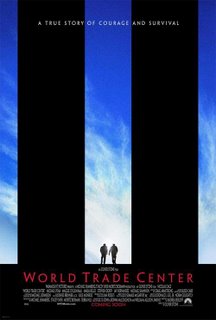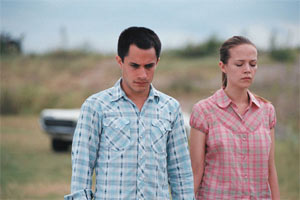 "Pain...it's a part of the puzzle"
"Pain...it's a part of the puzzle"Starring:
Tobin Bell
Shawnee Smith
Directed by:
Darren Lynn Bousman
Written by:
Leigh Whannell
My Rating: 3/5
The extent to which you enjoy this film mostly depends on whether you like “that sort of thing” or not. The film is full of imaginative and stomach-churning gore. It lacks characterisation and the twists and turns are less and less convincing as the franchise continues. It does, however, give the target audience exactly what they want. That is nasty, evil, cleverly conceived violence, and plenty of it.
The film opens with a needless tying up of the loose ends from Saw II. It was a perfect excuse to kick off with some shocking gore without having to bother setting up new characters. The real story begins about twenty minutes in when the writers finally reveal the basic premise. There are two story strands. One involves the notorious Jigsaw who is now bed-ridden from a brain tumour. He and his psychotic new protégé, Amanda, a survivor from the previous film, kidnap a young doctor, Lynn, and place a device around her neck which will explode if Jigsaw dies. The second story strand revolves around a vengeful man, Jeff, who must pass a series of violent tests or else he and others will die. Lynn must keep Jigsaw alive until Jeff has completed all his tests. This allows an excuse for a gory operation performed in the makeshift hospital that Jigsaw and Amanda seem to live in.
A large problem with the film is the ever-increasing elaborateness of the devices and scenarios. It begs the question of how this invalid and his crazy assistant can build these contraptions, and how can they find so many empty, abandoned warehouses? But if we suspend our disbelief for a moment, the torture scenes are the most clever and stomach-churning yet from this franchise or from any other for that matter. Another problem with the film is how the character of the Jigsaw killer is transformed into a God-like presence. He is presented in a morally righteous light. He is merely trying to help people. All of his games are designed to make survivors appreciate their lives. This idea is reinforced in a very humanising near-death experience where he is walking through a park with a beautiful young woman, presumably his wife. He is also shown to be disgusted with Amanda because of her murderous tendencies.
With our beloved villain portrayed in this pleasant light, we only have Amanda to provide the nastiness. Unfortunately, this character is so weak and unbelievable that it is hard to feel anything from her. She is a difficult character to understand and her deep emotional attachment to Jigsaw is never fully explained. We must presume some sort of Stockholm syndrome is at work.
Overall, the film succeeds where the audience needs it to. It delivers the gore, it delivers the tantalising scenarios. With enough gore nobody will care about the ugly over-stylisation, the irritatingly choppy editing, or the flashbacks and silly twists. These films are all about the gore and with that in mind; this is possibly the most successful film of the series so far.



